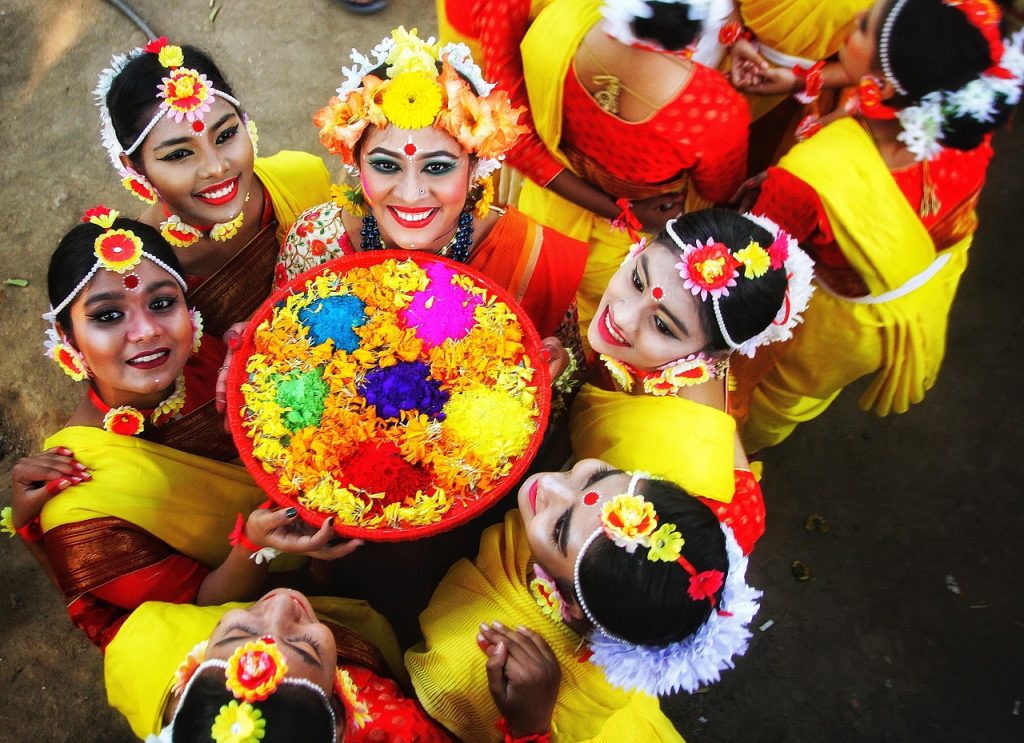Oriental Studies – Indian Studies
South Asian Studies (Asian Studies – Indian Studies) is interdisciplinary in nature, although the leading discipline is the study of culture and religion. This unique curriculum is offered exclusively at the Faculty of Asian and African Cultures at the University of Warsaw. The faculty boasts nearly 90 years of experience in teaching Asian and African cultures and languages, including those of South Asia, such as Sanskrit, Hindi, Bengali and Tamil. This tradition is reflected in the creation of this distinctive field of study: Asian Studies – Indology. The academic programme draws on many years of experience in teaching and conducting research on historical and contemporary issues in India and the other states of South Asia, including India, Pakistan, Bangladesh, Bhutan, Sri Lanka and Nepal. Faculty members are specialists — often the only ones in Poland — in this geographical and cultural area. They conduct advanced scholarly research, supported by numerous publications in Polish and international outlets. Students also have the opportunity to apply for language or research internships in South Asian countries to further enhance their qualifications and language skills.

The intended learning outcomes are twofold: the acquisition of extensive knowledge of various aspects of South Asian culture and the development of proficiency in one of the region’s languages. The programme provides a broad education in the literature, history, philosophy, religion, and art of South Asian cultural heritage, while also offering advanced linguistic competence through intensive language instruction.
The comprehensive education provided by the South Asian Studies programme (Asian Studies – Indian Studies), which also encompasses a wide spectrum of the humanities, enables students to undertake interdisciplinary research and develop a deeper understanding of the roots of contemporary global issues, as well as the ability to propose informed solutions. It equips students with a broad perspective, essential for understanding the challenges and conflicts of the modern world that arise from civilizational diversity. The programme also supports the education of a new generation of scholars in cultural and religious studies and other academic disciplines. Completing the South Asian Studies curriculum fosters cognitive synergy and contributes to shaping new modes of thought and social awareness—based on much-needed values such as understanding, openness, and tolerance towards others, alongside an appreciation for one’s own cultural heritage and the ethical principles rooted in both European and South Asian traditions.

The knowledge gained will enable graduates of the South Asian Studies programme to navigate general issues related to the theory and practice of Indian culture and the cultures of other South Asian countries with confidence. Graduates will have a solid understanding of the diversity of cultures and civilisations, enabling them to participate meaningfully in intercultural dialogue and cooperation. They will possess a theoretical foundation for reflecting on the cultures of South Asia and the ability to analyse core cultural phenomena, supported by strong language skills and methodological training in cultural and religious studies, linguistics, philosophy, history, literary studies, and art history.
Graduates will be well-prepared for employment in cultural institutions, the media, publishing, and public administration. With increasingly dynamic economic relations between Poland and South Asia, there is growing demand in the labour market for experts fluent in the region’s languages and familiar with its socio-cultural contexts. Similarly, political and diplomatic relations with South Asian countries require professionals with specialised knowledge of the region’s languages and cultures—such as graduates of the South Asian Studies programme. Furthermore, graduates will be well-positioned to pursue second-cycle (Master’s) studies.
The South Asian Studies programme has been included in the Integrated Teaching Development Programme. Beginning with the 2025/2026 academic year, new students will benefit from an improved curriculum and additional development opportunities as part of their studies.
The Integrated Teaching Development Programme – ZIP 2.0, implemented by the University of Warsaw since 1 January 2025, is co-financed by the European Social Fund under the European Funds for Social Development 2021–2027 (FERS) (agreement no. FERS.01.05-IP.08-0365/23-00).
Więcej informacji o Programie ZIP 2.0: https://zip2.uw.edu.pl/

As part of the admission process for the 2025/2026 academic year, enrolment for the full-time first-cycle (BA) program in South Asian Studies (Asian Studies – Indian Studies) includes a group offering parallel instruction in two Indian languages: Bengali and Hindi.
To apply, candidates must register through the University of Warsaw’s Online Candidate Registration System.
https://irk.uw.edu.pl/pl/
Qualification rules
https://irk.uw.edu.pl/pl/offer/PELNE2025/programme/S1-OR-IN/?from=field:P_OR
Dean’s Representative for Recruitment
dr Jan Rogala
email: rekrutacja.orient@uw.edu.pl
tel: +48 22 55 20 513
https://orient.uw.edu.pl/kandydaci/